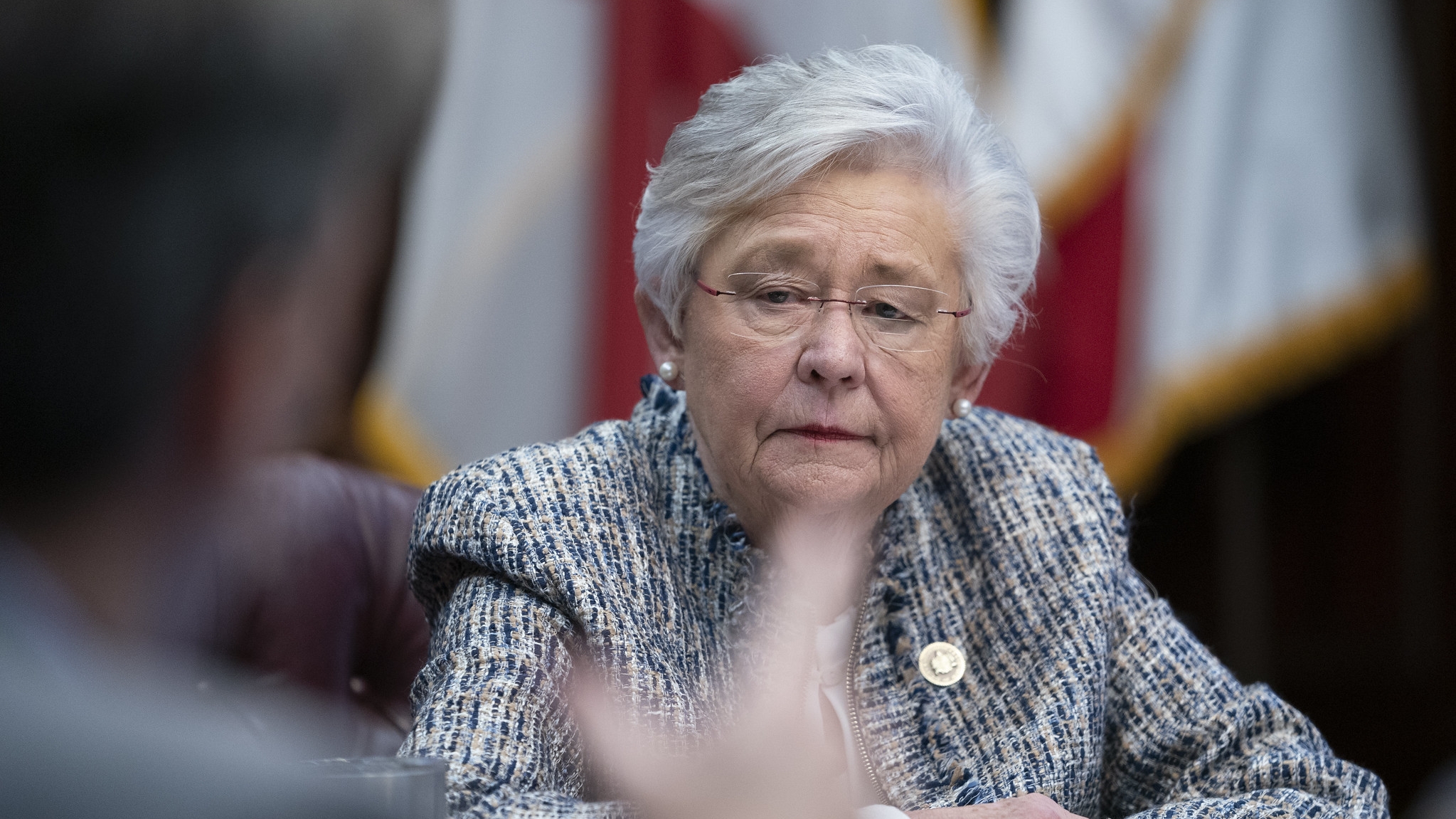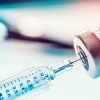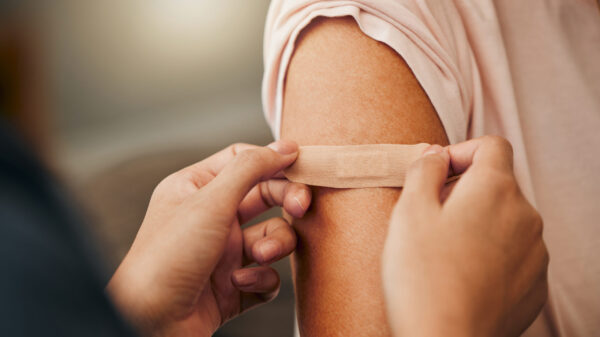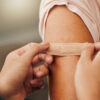Despite Alabama having the second-lowest COVID-19 vaccination rate in the nation, hospitalizations rising and the more contagious delta strain quickly becoming dominant, Alabama Gov. Kay Ivey has no plans to ask for help from newly-formed federal surge response teams.
White House officials on July 1 announced that federal COVID-19 surge response teams were being readied to send into areas with low vaccination rates to help combat the more contagious delta variant, which now makes up about half of all new cases in the U.S.
Jeff Zeits, White House COVID-19 response coordinator, during a July 1 press conference said those teams will be able to boost testing and contact tracing, deploy federal personnel where needed and requested to augment local staff supporting vaccination, testing, and therapeutics work, and would aid with containment “including assisting with epidemiology, data analysis, field investigations, and other public health response work.”
The federal response teams would also focus on increasing vaccinations in communities with low vaccination rates, including through targeted ad campaigns, Zeits said. During a Thursday press briefing Zeits said those teams are already working in Missouri, Nevada, Illinois and Arkansas.
About 33 percent of Alabamians eligible for COVID-19 vaccines are fully vaccinated, according to the Centers for Disease Control and Prevention, which puts Alabama just ahead of Mississippi, with the lowest vaccination rate in the U.S.
The number of COVID-19 patients hospitalized at UAB Hospital jumped from five on June 24 to 24 on July 4. Hospitalizations statewide on Wednesday were at 256, up 54 percent from the post-winter surge low of 166 hospitalizations on June 20.
“Hospitalization rates are increasing exactly as we saw before,” said Dr. Jeanne Marrazzo, director of infectious diseases at UAB, in a press conference Wednesday.
It appeared Wednesday that Ivey’s office wasn’t clear on what those federal response teams are tasked with doing in states with low vaccination rates.
“We are all for educating people on the COVID-19 vaccine, but from the little we know about this program, it does not seem like the answer. Governor Ivey has no plans to put in a request for government workers to knock on people’s doors here in Alabama,” Ivey’s press secretary, Gina Maiola, said in a response to APR on Wednesday.
“Alabamians have a choice to get the vaccine, and Governor Ivey has certainly not been shy about encouraging people to roll up their sleeves and get it,” Maiola continued. “Leading by example, she herself received the vaccine. Governor Ivey believes in the science, but she also believes strongly that people have the right to choose what is best for them when it comes to the COVID-19 vaccine.”
APR sent Ivey’s office information on what sort of help those federal response teams are capable of providing, but Maiola responded that there are “no current plans for any additional federal help like this.”
“Vaccines are readily available in Alabama, and our hospitals are in good shape. We are experiencing one of the strongest economic comebacks in the nation, so, instead of focusing on what other states’ needs may be, Governor Ivey is laser focused on what is needed to move Alabama forward,” Maiola said.
Marrazzo warned that the delta variant poses a significant risk and, with the state’s low vaccination rate, could lead to a summer surge.
The number of counties deemed by the Alabama Department of Public Health to be a “very high risk” for the spread of COVID-19 on Thursday jumped to 21, up from six counties the week before.
Jefferson County Health Officer Dr. Mark Wilson in a video tweeted on Wednesday said that the county has seen a doubling of news cases in the last two weeks, and that the delta variant is circulating within the community.
“That, combined with low vaccination rates makes us vulnerable, so if you’ve not been vaccinated yet please roll up your sleeve and go ahead and get it done,” Wilson said.
Marrazzo noted Wednesday that a person can contract the delta variant in as little as five seconds of exposure.
White House officials when announcing those new response teams noted that there were about 1,000 counties nationwide with vaccination rates under 30 percent.
Only 14 of Alabama’s 67 counties have a vaccination rate of 30 percent or more, according to Alabama Department of Public Health, and four counties have vaccination rates below 20 percent – Chilton, DeKalb, Escambia and Russell counties.
Marrazzo said while the spreading delta strain is concerning, our current vaccines are still effective against the strain. Even in the rare instances when a vaccinated person contracts COVID-19, the outcomes are much less severe than among the unvaccinated, she said. The vast majority of those being hospitalized and dying from coronavirus today are among the unvaccinated.
A recent survey by the Alabama Hospital Association found that 94 percent of Alabamians hospitalized with COVID-19 were not vaccinated against the deadly disease.
Alabama Department of Public Health spokesman Ryan Easterling in a response to APR’s questions Wednesday said the department has not requested a federal surge team.
“That said… ADPH has requested and received assistance from CDC throughout the pandemic and in several outbreak investigations in the past – it is routine for states to request technical assistance from CDC,” Easterling said.
The ADPH most recently asked for, and received, assistance from the CDC with vaccine confidence in Sumter and Macon counties, Easterling said, and the department works with the CDC vaccine task force to identify areas where the CDC can help.
“ADPH received three Federal inter-agency COVID-19 Response Assistance Field Team visits previously to Jefferson County, Madison County and Mobile County last year. That initiative was led by the White House,” Easterling said.
Easterling said from his understanding it is somewhat of a “two-way process.” The Federal teams reach out to states to offer assistance, and the states can request assistance on their own, Easterling said.
Missouri, led by Republican Gov. Mike Parson, asked for help from those federal response teams the day the White House announced them, as the state is experiencing an uptick in cases and hospitalizations, according to The St. Louis Post-Dispatch.
A White House officials confirmed that the federal response team will focus on vaccine confidence efforts, epidemiology, surveillance and sequencing support related to the Delta variant, according to the Kansas City Star.



















































